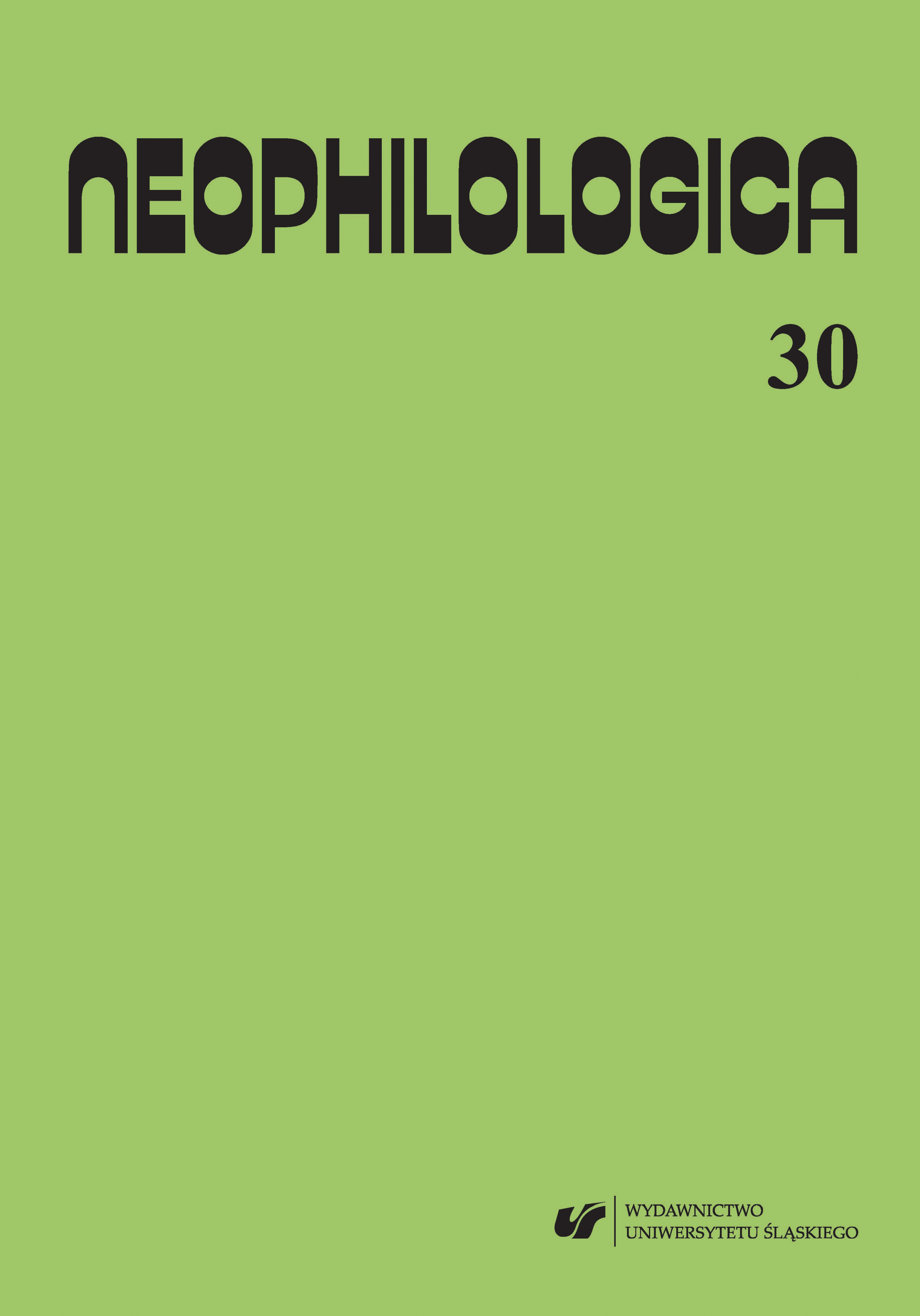Genre — entre l’identification partielle et l’approximation suspensive
Genre — between partial identification and suspensive approximation
Author(s): Sonia BerbinskiSubject(s): Language and Literature Studies, Theoretical Linguistics, Applied Linguistics
Published by: Wydawnictwo Uniwersytetu Śląskiego
Keywords: approximation; category-based approximation; noun gen; approximator; suspensive approximation
Summary/Abstract: As a dynamic expression of vagueness, approximation takes the shape of several discourse identities, such as indeterminancy, hesitation, ambiguity, attenuation, certain forms of ellipsis, everything that is characterised by an imprecise value of semantic and discursive content. Approximation has multiple sources, which are extremely dynamic in terms of their production. Depending on whether approximation affects ‘classifying’ discursive unities (M i l n e r, 1973) with a denominative role or evaluative or axiological unities, we can speak of a category-based approximation and of a predicative approximation, each type involving a wide variety of instruments of approximation. Our article aims to analyse the linguistic behaviour of the Romanian noun gen (lat. genus, generis) in relation to other Romance languages (French, Spanish, Italian). This instrument of approximation is at the interface between the taxonomic categorising value and the approximation value, which, in turn, manifests itself at the level of the referent either as partial identification or suspensive approximation. The complexity of this marker’s behaviour resides especially in the non-categorising role, which accounts for its multiple actualisations in most of Romance languages, especially in Romanian.
Journal: Neophilologica
- Issue Year: 2018
- Issue No: 30
- Page Range: 42-56
- Page Count: 15
- Language: French

